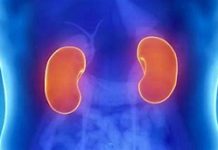– Chemicals found in pizzas, burgers of seven Delhi fast food outlets
The findings of this CSE study are literally alarming as most of us consume bread almost daily. Bread samples in Delhi contained cancer-causing chemicals, a study released today said, prompting the Union Health Ministry to order a probe.
A latest study by Centre for Science and Environment (CSE) has found residues of potassium bromate and/or iodate in many types of bread.
Noteworthy, the additives – Potassium bromate (KBrO3) and potassium iodate (KIO3) – considering that it can cause cancer, have been banned by many countries for their potentially adverse health effects.
“Bread and bakery products are an essential part of our daily diets today. Children are consuming them more than ever before. We need to prevent near-routine exposure of this possible cancer-causing chemical.
In the CSE study results, products of 7 popular fast food Delhi outlets selling pizzas and burgers tested positive for chemicals.
The study shows that 84 per cent of bread and bakery samples collected from Delhi contain residues of potassium bromate, potassium iodate or both.
Potassium bromate (KBrO3) and potassium iodate (KIO3) are chemical food additives which, according to Indian food regulations, can be used by bread makers and bakeries as flour treatment agents. Potassium bromate helps achieve high rising and a uniform finish.
But the safety of these additives is under a cloud.
Nearly 84 percent of 38 commonly available brands of pre- packaged breads including pav and buns, tested positive for potassium bromate and potassium iodate, banned in many countries as they are listed as “hazardous” for public health, the report by Centre for Science and Environment (CSE) said.
It claimed that while one of the chemicals is a category 2B carcinogen (possibly carcinogenic to humans), the other could trigger thyroid disorders but India has not ban their use.
CSE’s Pollution Monitoring Laboratory (PML) tested 38 commonly available branded varieties of pre-packaged breads, pav and buns, ready-to-eat burger bread and ready-to-eat pizza breads of popular fast food outlets from Delhi.
“We found 84 per cent samples positive with potassium bromate or iodate. We re-confirmed the presence of potassium bromate or iodate in a few samples through an external third-party laboratory. We checked labels and talked to industry and scientists.
“Our study confirms the widespread use of potassium bromate or iodate as well as presence of bromate or iodate residues in the final product,” said Chandra Bhushan, deputy director general, CSE.
Reacting to the CSE report, Health Minister J P Nadda said,”We are seized of the matter. I have told my officials to report to me on an urgent basis. There is no need to panic. Very soon we will come out with the (probe) report.”
The study found that 84 per cent (32/38) samples were found with potassium bromate or iodate in the range of 1.15-22.54 parts per million (ppm).
Around 79 per cent (19/24) samples of packaged bread, all samples of white bread, pav, bun and ready-to-eat pizza bread and 75 per cent (3/4) samples of ready-to-eat burger bread were positive.
CSE said, “High levels of potassium bromate/iodate were found in sandwich bread, pav, bun and white bread” involving virtually all top brands.
Health impacts of these two chemicals
In an evaluation in 1986, the International Agency for Research on Cancer (IARC), associated with the World Health Organization (WHO), stated that there was sufficient evidence to show the carcinogenicity of potassium bromate.
In 1999, IARC acknowledged that exposure to potassium bromate could occur due to its use as a dough conditioner and classified it as Class 2B which means “possibly carcinogenic (cancer-causing) to humans”.
What does CSE recommend now?
The FSSAI should prohibit the use of potassium bromate in making bread and bakery products with immediate effect.
The use of potassium iodate as a flour treatment agent in bread and other bakery products should not be allowed by the FSSAI.










